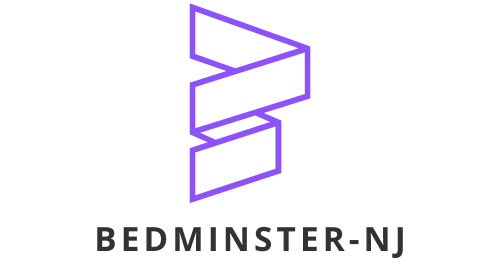How to Choose the Right Dietary Fiber for a Dog with Gastrointestinal Issues?

Just as humans need dietary fiber, dogs also require it for optimal health. Fiber is a crucial component of a dog’s diet that aids in digestion, weight management, and mitigating gastrointestinal issues like diarrhea. However, not all fibers are created equal. Like people, dogs can react differently to various types of fiber. So, it is imperative to understand the role of fiber in a dog’s diet and how to choose the right kind for your furry friend.
The Role of Fiber in a Dog’s Diet
Understanding the role of fiber in a dog’s diet will help you make informed decisions about what type of food to provide your pet. It’s not just about filling their stomachs; it’s about promoting overall well-being and sustained health.
Sujet a lire : What Are the Key Steps to Rehabilitate a Bird with a Broken Wing?
Fiber is a form of carbohydrates that can’t be digested by your dog’s system. There are primarily two types: soluble and insoluble fiber. Soluble fiber absorbs water and slows digestion, allowing for better nutrient absorption. Insoluble fiber, on the other hand, doesn’t dissolve in water. It aids in bulking up and moving stool through the digestive tract, helping in maintaining a regular bowel movement.
According to the American Kennel Club (AKC), fiber plays a significant role in a dog’s health. It aids in weight management by making dogs feel fuller for longer, reducing their overall calorie intake. Fiber can also help stabilize blood sugar levels, beneficial for dogs with diabetes.
En parallèle : How to Effectively Use a Puzzle Feeder with a Food-Motivated Cat?
Recognizing Gastrointestinal Issues in Dogs
To determine the right fiber type for your dog, it’s crucial to recognize any existing gastrointestinal issues. Digestive problems such as diarrhea, constipation, or bloating are common in dogs and can be managed with the correct dietary intervention.
Diarrhea, in particular, can indicate problems with your dog’s diet or an underlying health issue. It can be a sign that your dog is not tolerating certain types of food or that they are eating too much fiber.
On the other hand, constipation could mean that your dog is not getting enough fiber or water in their diet. Chronic constipation could lead to more serious health issues like obstruction of the colon or anal gland problems.
Choosing the Right Fiber for Your Dog
Choosing the right fiber for your dog revolves around their specific dietary needs and health condition. It’s essential to consider their age, breed, activity level, and current health status to determine the best choice of fiber.
For dogs with diarrhea, soluble fiber is often recommended. This type of fiber can absorb water in the digestive tract, adding bulk to the stool and slowing its passage. Foods rich in soluble fiber include fruits like apples and bananas, and certain types of grain like oats.
Conversely, dogs suffering from constipation might benefit more from insoluble fiber, which can speed up the passage of food and waste through the gut. Foods high in insoluble fiber include whole grains, corn, and certain vegetables.
In some cases, a mix of both soluble and insoluble fibers may be recommended. You should consult with your vet to understand the optimal ratio for your dog’s specific needs.
The Best Fiber-rich Foods for Dogs
It’s crucial to not overdo fiber in your dog’s diet. Too much can lead to bloating, gas, and diarrhea. The AKC recommends that fiber should make up less than 10% of your dog’s diet. This should consist of a good blend of both soluble and insoluble fiber.
Certain commercial dog foods are formulated with high fiber content to aid in digestion and bowel movements. Some of the best fiber-rich foods that you can incorporate into your dog’s diet include pumpkins, sweet potatoes, beans, and broccoli.
If you prefer to prepare your dog’s food at home, consider incorporating fiber-rich aspects, such as sweet potatoes or green beans, into their meals. You can also add a spoonful of canned pumpkin to your dog’s regular food for an extra boost of fiber.
As with any changes to a dog’s diet, it’s crucial to introduce new foods gradually and monitor their effect. Changes in your dog’s stool, frequency of bowel movements, and overall demeanor can provide essential clues about how well they are adjusting to the new diet.
In conclusion, the right type of fiber can play a significant role in managing your dog’s gastrointestinal issues. It’s important to consult with a vet to determine the best dietary plan for your pet. Remember, every dog is unique and what works for one may not work for another.
Fiber Enhanced Dog Food vs. Natural Sources
When dealing with a dog’s gastrointestinal problems, you’ll likely encounter the choice between fiber-enhanced dog foods and natural sources of fiber. Each has its own advantages and disadvantages, and the choice will largely depend on your dog’s specific needs.
Fiber-enhanced dog foods are readily available in the market and are specially formulated for dogs with gastrointestinal issues. They contain a pre-calculated amount of fiber, ensuring your dog gets the right dosage. Some of these dog foods are created with soluble fiber, others with insoluble fiber, while some provide a mix of both. They take the guesswork out of portioning and can be particularly useful for busy pet owners.
On the other hand, natural sources of fiber can offer additional benefits to your pet’s health beyond just aiding in digestion. Whole foods like sweet potatoes or green beans, for example, contain essential nutrients and vitamins that can contribute to overall dog health. Incorporating these food items into your dog’s diet allows you to control the type and amount of fiber your pet is consuming.
However, it’s important to remember that while natural sources offer numerous benefits, they should be introduced gradually into your dog’s diet. Sudden changes in diet can lead to adverse reactions, particularly in dogs with a sensitive stomach.
Regular Monitoring and Consultation with a Vet
Incorporating fiber into your dog’s diet is not a "set it and forget it" situation. It’s important to regularly monitor your dog’s health and to consult with your vet to ensure the optimal effects of a high fiber diet.
Constant observation of your dog can provide vital information about their health. Changes in their bowel movements, behavior, or overall demeanor may indicate that their current diet is not suiting them. For example, constipation despite a high-fiber diet could mean that your dog is not drinking enough water, or that there’s an underlying health issue.
Your vet plays a key role in this process. They can provide guidance on the best dog foods or fiber sources for your pet, taking into consideration factors like breed, age, and health status. Moreover, your vet can help monitor your dog’s progress and make necessary adjustments to their fiber diet.
Remember, it’s always better to err on the side of caution. If you notice any sudden changes in your dog’s behavior or physical health, it’s best to consult with your vet immediately.
Conclusion
As a responsible pet owner, you want nothing but the best for your furry friend. When it comes to managing gastrointestinal issues, understanding the importance of dietary fiber in a dog’s diet is essential.
Choosing between soluble and insoluble fibers, deciding on fiber enhanced pet food or natural sources, and being observant of any changes in your pet’s behavior are all part of ensuring your dog’s overall health.
Regular consultations with your vet are also crucial, as they can provide professional advice based on their knowledge and experience, making sure that your dog gets the most out of their fiber diet.
As the famous saying goes – "an ounce of prevention is worth a pound of cure". By taking the time to understand your dog’s dietary needs and acting accordingly, you are not only addressing their current health issues but also preventing potential ones. With the right balance of dietary fiber, your dog can lead a happier, healthier and longer life.
